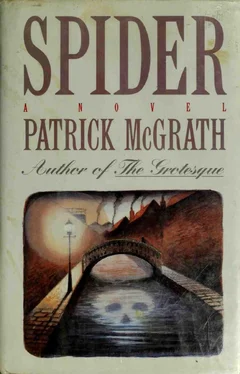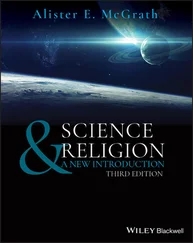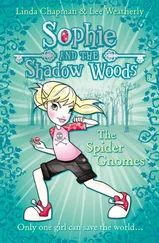These then I call the good years, Spider at peace. In the evenings I played billiards with Derek Shadwell, and later (Derek died in Ganderhill) with Frank Tremble. I read the paperbacks that passed from hand to hand in Block F, very occasionally a newspaper, almost never did I listen to the wireless (large events were unfolding, apparently, during the early years, but I wanted no part of them). I held my mother’s presence close, in the back parts where I’d always held her, and mentioned her to no one, not even Derek when he was alive. I became a good gardener, and fresh vegetables being generally a scarce and valued commodity in Ganderhill my access to these goods contributed much to my status in the institution. Dr. Austin Marshall maintained an affable warmth toward me and almost always remembered my name when he came limping across the terraces with his cane. Often he had his dogs with him, a pair of large glossy-coated Irish setters toward which I displayed an affection I did not feel; I used to think with some pleasure of what John Giles would do to those dogs after he’d finished with the superintendent.
(See me out on the landing now, both hands gripping the handle of the door to the attic stairs, shaking it and weeping brokenly as their laughter shrieks and howls about my ears, useless of course, it’s locked of course, so see me shuffle back to my table where I sink, stiffly crackling, onto my chair and reach for the tobacco to roll myself a fat one, I need it. It ebbs now as with trembling fingers I light my cigarette and get a good harsh mouthful down, feel it sucking down the pipe, pushing down the terror, emerging in thick cloudy coils and whorls into my one remaining lung where a worm lies dozing in the lower part, the segments of its plump white body heaped atop each other in a circular formation. Smoke rapidly fills the sac, is absorbed by grayish spongy tissue, enters the system of lacelike filaments that trace their forking circuits (still!) across the pulpy inside surface of my rind, and so to skull and brain. Nothing looks so bleak after a smoke.)
Every afternoon at about four o’clock we would gather in the shed for a cup of tea, the half-dozen of us who worked in the vegetable gardens, with Fred Sims, our attendant. Sims was a quiet fellow who could be relied on to give us news. I remember the day he told us that the superintendent was retiring. Rain was pattering on the roof of the shed, we were inside on wooden boxes, us in our yellow corduroys, him in his black uniform and peaked cap, and the door was open. There was an uneasy shuffling at this piece of information; men in our position did not welcome change. “Retiring?” said Frank Tremble. “What, Dr. Austin Marshall?”
Sims nodded, his eyes on the floor as he removed a shred of tobacco from the tip of his tongue. More shuffling. “Why’s that then, Fred?”
He lifted his eyebrows and shrugged. “Too old, they want a younger man.”
“Younger man, eh.”
He took off his cap and scratched his head. He was very thin on top. “Seems they’ve picked him already,” he said. “Who is he, Fred?”
“It’s a Dr. Jebb, from London.”
“Jebb,” said Frank.
“Never heard of him,” said Jimmy. “What’s he like then?”
“He’s got new ideas,” said Sims.
A very uneasy silence at this point, a good bit more shuffling of boots on floorboards. Around us in the gloom tools hung from nails in the walls, spades, rakes, forks, mattocks, hoes, trowels, shears. On the floor, battered watering cans, piles of flowerpots, stacks of wooden boxes. Shelves with bundles of markers held together by rubber bands, flats for seedlings, coiled hoses, balls of twine, knives, pencils, spoons, scissors, bales of netting, old newspapers. Strong smell of earth and dampness. Outside, a steady downpour of rain. “New ideas,” said Jimmy. “Looks like you’re out of a job then, Fred.” We had a good laugh about that, but even so there was planted in all of us, that afternoon, the seeds of anxiety, for none of us wanted change, not Frank, not Jimmy, not Sims, not me.
(Derek, of course, didn’t live to see the changes that came with Dr. Jebb, and he was fortunate not to. I remember him once telling me that every time he smoked a cigarette his mother had to sleep with a sailor. Poor old Derek, his mother was dead, though of course I didn’t say this to him. We were playing billiards at the time, and the worst of it was, he said, shooting a cannon and sinking the red ball, he was smoking more than ever! I think it might have been this that finally drove him to it.)
After the summer of splendid light, as I came to think of it, my mother’s phantom presence in Ganderhill became increasingly rare. That summer was the peak, the acme, in this regard, and there was even a period—a few days, no more—when the weather came under the control of my own thoughts and actions. Those were exhilarating days, but the effort involved in maintaining splendid light proved in the end too much for me, so I slowly allowed it to slip away. After that, as I say, her appearances became more fleeting and irregular, and in the last years I barely glimpsed her more than three or four times, and always at dusk, in the vicinity of the old tea garden, now planted with beds of cabbages, spring onions and potatoes, with a line of cucumber frames along the south side.
One day Sims told us that Dr. Austin Marshall had cleared out his office and left. There was a farewell banquet in the staff social club, where he was presented with a handsome wheelchair specially constructed in the Ganderhill workshop, for apparently his bad leg was now making it impossible for him to get around. There were speeches, and everyone was very moved. There was talk of a knighthood in the New Year’s Honors List.
After this, a breathless pause, so it seemed, in Ganderhill, as we awaited developments. The news Sims told us was alternately alarming and reassuring. Jebb reportedly intended to hire more psychiatrists. On the other hand, he generously increased the tobacco allowance. Sims’ attitude toward the new superintendent was cagey and watchful, and so was mine.
I was called to his office one morning at the end of June. I’d seen the man on the terraces, though only from a distance; not for him the tweeds, the dogs, the genial affability of his predecessor. No, Jebb stormed along in a turbulent cloud of purpose and vigor, which only served to deepen my foreboding; he wore a dark suit. I sat outside his office on a hard chair in the corridor, soil under my fingernails and clad in my yellow corduroys: I’d come straight from the vegetable gardens. I sat there for thirty minutes, not smoking, and finally the door opened and a group of senior attendants came shuffling out, looking grim. Dr. Jebb then peered at me from the doorway. “I won’t keep you a minute,” he said, and went back in, closing the door. Fifteen minutes later he called me in.
The first shock: he told me to sit down, frowned at my file, lifted his head, took off his spectacles—and I was staring straight into eyes the same cold shade of blue as my father’s!
I shrank back in my chair (a hard wooden one). He had the same hair as my father, black, lank, and oily, combed straight back off a narrow forehead and flopping about his temples: he frequently pushed a hand through it when he frowned. The same narrow nose, the same pencil-thin mustache neatly hedging the top lip, the same wiry build and tone of pent explosive energy: what jest was this? “You’ve been in Ganderhill,” he said, without preamble, and I was relieved to discover that his voice, at least, was his own, “how long?”
I shuffled on my chair and cleared my throat. All I could seem to manage was a sort of helpless croaking sound. He frowned at me. “Almost twenty years, Mr. Cleg. You were very disturbed on admittance”—here he replaced his spectacles and read from the file—“ ‘negativistic... withdrawn... uncooperative... aggressive.’ You settled down fairly quickly, however, you formed friendships, became a steady worker, and for the last ten years you’ve held a position of trust in the vegetable gardens, a trust you haven’t abused.” He took off his spectacles again and glared at me with those familiar glacial eyes. “How would you like to try life on the outside?”
Читать дальше












